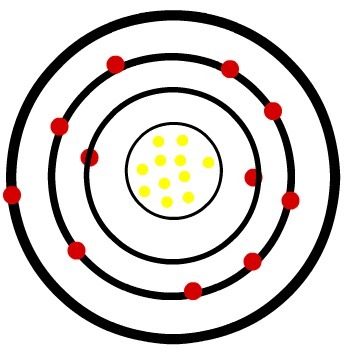According to economics manuals, the so-called productive resources (or factors of production) are elements used in the production processes of all types of goods (commodities) necessary for our lives material. Thus, they refer to the so-called inputs (such as labor, raw material and capital). For Karl Marx, a nineteenth-century thinker who produced one of the most important criticisms of the structure of capitalist society, productive resources would be divided as follows in the context of a class society: the proletarians (workers, workers) would have to work (a resource of little value), that is, their labor power is seen as a productive resource; while the means of production, such as the factory, machine and capital (most valuable resources), would be exclusively under the power of a ruling class, the bourgeois class.
Thus, in general terms, the main productive resources are among: labor, land, raw materials, capital and production capacity. When starting with the issue of land as a factor of production, it generally refers to the natural resources that can be extracted from it. Therefore, certain activities depend on the land, such as the extraction of ores (iron ore, copper, tin, gold, silver, etc.), oil extraction, in addition, of course, to the most diverse agricultural cultures and construction itself civil. That is, as an input, sometimes the earth provides natural raw materials (oil and iron, for example) that are only extracted by man, sometimes it it contributes its nutrients to crops, not to mention its physical need for the construction of houses, buildings, factories and others enterprises. Hence its economic value is one of the greatest in terms of productive resources. Therefore, regardless of the nature of the field of activity that uses land as a means of production, it is worth saying that the resources that come from it are scarce.
Another fundamental production factor that has certainly undergone and undergoes transformations throughout the history is work: human, physical or mental (intellectual) effort to produce goods and services. Obviously, as a factor of production, work needs no further explanation, since, despite being among the productive resources of lesser economic value, it is certainly the protagonist of any model of production. After all, it is through work that man interacts and transforms his environment and nature (and, through techniques, gets what he needs for his material life). Whether in the field, harvesting fruit, or in the city, on the factory floor, the worker is present with his workforce, to a greater or lesser degree of specialization.
As already mentioned, capital itself is a productive resource, that is, a necessary input. Capital itself does not just refer to the idea of current money, but to man-made goods for the production of other goods. This is what the economy calls capital goods, such as machinery, technology, tools, computers, railways, ports, factories, etc. According to Nogami and Passos (2005, p. 13), such instruments, however, must be considered as financial capital and do not constitute wealth, but a right to it. There will be no increase in wealth in society if these paper rights (like own money, certificates, etc.) increase without a corresponding increase in capital goods (buildings, equipment, inventories, etc.). Finally, and no less important, but closely linked to this last resource presented, is the entrepreneurial capacity: it refers to the capacity and role of the entrepreneur in the process of production, as he is the one who organizes the other productive resources, invests, takes risks and profits, making use of his financial resources, administrative and entrepreneurial capacity.
In fact, for the functioning of capitalism, capital investment by the bourgeois class (using here Marx's terminology and not the pejorative sense that word acquired over time) in productive resources or factors of production is a sine qua non, that is, without which this type of production cannot would sustain. But an observation must be made while pondering about capitalism: the generation of poverty, the exploitation of the weakest, the social inequality resulting from poor income distribution and many other social problems are a direct consequence of the mode of production capitalist. Thus, one of the contemporary challenges is the attempt to equate ways and paths to promote the economic growth concurrently with social and also sustainable development (from the point of view of environmental). In addition, among the factors of production presented, it is certainly work, given the social aspect involved, which should take the lead in concerns of everyone, as the worker must be assured, at a minimum, of good conditions of salary and performance of their functions in the process. productive.
References:
STEPS, C. A. M.; NOGAMI, O. Principles of economics. 3rd ed. São Paulo: Pioneer, 2001. 475p
Paulo Silvino Ribeiro
Brazil School Collaborator
Bachelor in Social Sciences from UNICAMP - State University of Campinas
Master in Sociology from UNESP - São Paulo State University "Júlio de Mesquita Filho"
Doctoral Student in Sociology at UNICAMP - State University of Campinas
Source: Brazil School - https://brasilescola.uol.com.br/sociologia/o-que-sao-recursos-produtivos.htm

